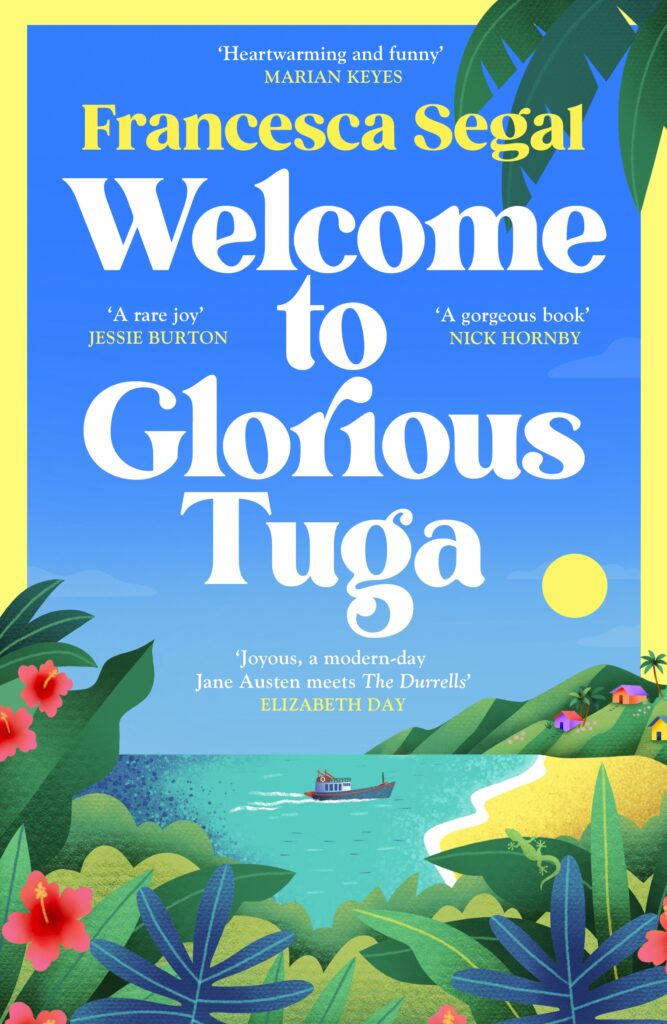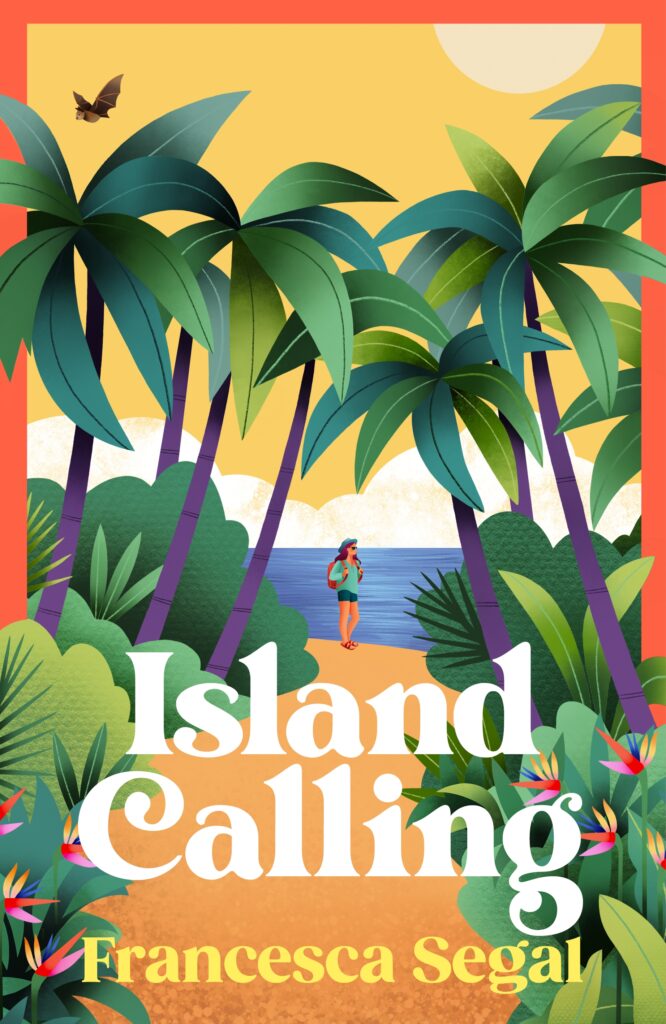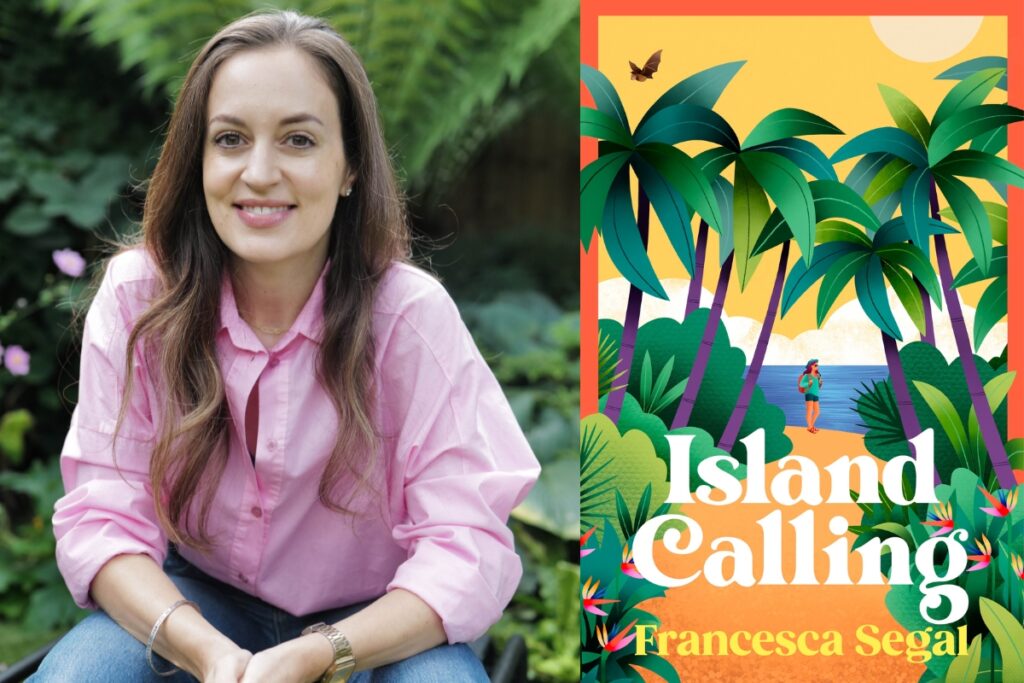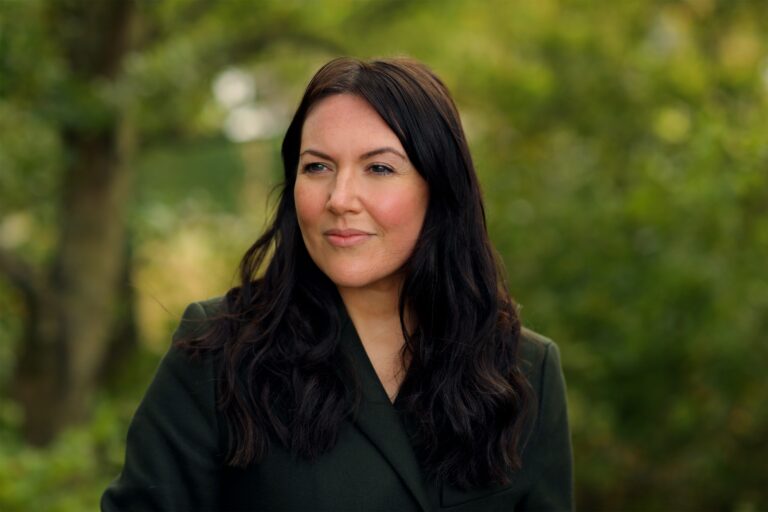Women’s Prize longlisted author of The Innocents, Francesca Segal, returns with Island Calling – the funny, moving and hope-filled second novel in the Tuga triology, set on the fictional island of Tuga de Ora. To celebrate it’s publication, we caught up with Francesca to learn more about how to build a convincing world for readers to get lost in.
Each journey to the writing desk is a departure from reality, even if the world of the writer’s making is a faithful facsimile of the real one. Novel-writing requires both honesty and invention, as well as reinvention. As Ann Patchett has said of her own fiction, ‘None of it happened, and all of it’s true.’
The term ‘world-building’ is most frequently associated with science fiction and fantasy. Whether Star Wars or Tolkien, it usually refers to the construction of alternative universes that are magical, supernatural or dystopian. And it’s true that science fiction offers the clearest examples, as well as some of the most pleasurable. But I would argue that world-building is a necessary element of all successful fiction (and arguably of all non-fiction, too). It takes care to persuade a reader that they are elsewhere, and to bring that elsewhere vividly and convincingly to life. That care is necessary regardless of whether a story is set in contemporary Edinburgh or in a future Martian colony. But if you are confecting a place from scratch – a place that only exists inside the novel in which you built it – the work requires a different sort of detailed and meticulous construction. This has its own pleasures, and obligations.
My own most recent two novels, Welcome to Glorious Tuga and its sequel, Island Calling, follow the journey of uptight London veterinarian Charlotte Walker, who travels to research a rare population of tortoises on Tuga de Oro, in the south Atlantic. Tuga de Oro does not, in fact, exist. And so, I had to build it.
It was the island that came first, as the embodiment of what I came to recognise as my own happy place – a tiny British Overseas territory in the South Atlantic, an island of red London phone boxes installed on the periphery of dense jungle; of white sand beaches and a musical taste firmly rooted in some pretty questionable 1980’s pop. Tuga de Oro is an isolated tropical island, and on it live a tight-knit collectivist community of characters doing their best. It has a 1950’s innocence blended with contemporary, egalitarian values and that balance required care. Sweet, but not twee. Old-fashioned but in a way that was charming, not retrogressive.
Above all else, I knew that it had to convince. Even before the island had entirely come into being, I understood that this wasn’t a fantasy novel – the only invented element was the existence of the island itself. It could exist, and having decided its longitude and latitude, the flora and fauna would have to make sense, as well as the climate, and the behaviour of the surrounding ocean.
Once I could see their environment, a community and culture inevitably began to shimmer into existence, and with them a history, present and future. Next came individual, idiosyncratic, funny characters, inspired by these, and from it all arose a novel. Once dreamed into being, a new world constrains and dictates and, with care, that disciplined consistency is what lulls a reader to suspend their disbelief.
The convincing construction of a place is why anachronism or error can be so jarring in fiction; it serves as an immediate, unwelcome reminder that the universe we are inhabiting is not real. Not real sits uncomfortably close to fake. And thus a writer must be an expert in her own landscape, and never more so than when that landscape is one of her own invention. She must know the weather; she must know how to get from the post office to the school house, and whether you cross the river to get between the two. She must know what year we are in, and whether the nation is at war. Either there are local marsupials, or there aren’t. A reader may never come to hear one way or the other, and in most cases probably shouldn’t – let’s face it, indulging a complete anthropological and ecological guide would mean certain death for your novel. But if asked – on stage at a literary festival for example, or in the pub – the author ought immediately to be able to decide, and to know that her instinctive answer was true. And from the accretion of detail will arise story and character, as if by magic. If you realise that there are marsupials, for example, then perhaps there is someone devoted to feeding them, while a neighbour sees them as vermin and sets out hidden traps.
How do the community of your novel propose to one another? What is their traditional dish? What are their death customs? What was the worst crisis in their remembered history? What do they drink after work? Writing can so often be agonising, dispiriting, frustrating. But world-building is some of the most delightful, uplifting writing-as-play that I’ve ever experienced. I highly recommend it. It will bring you joy, if you let it.










